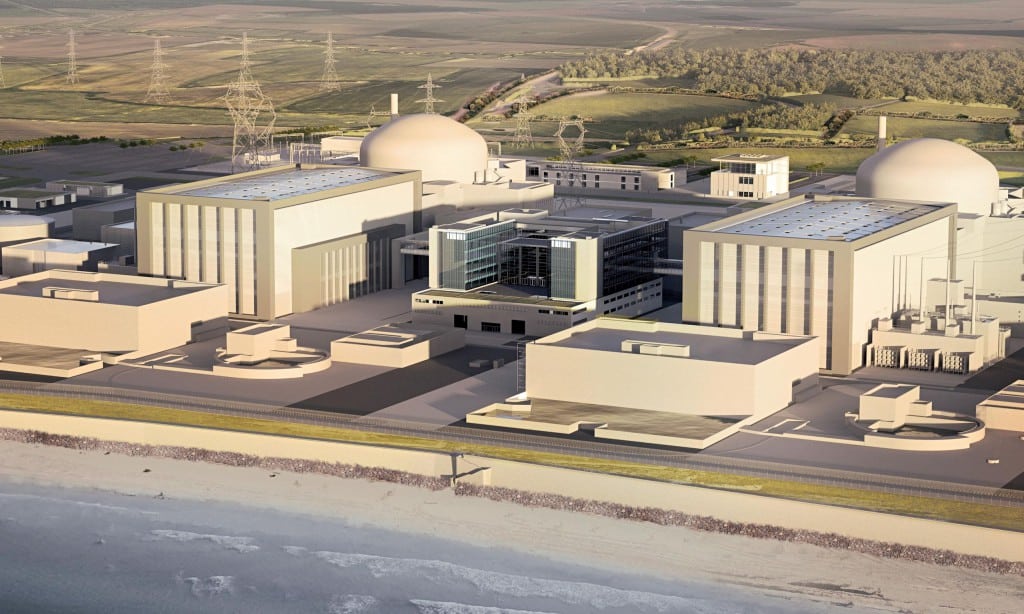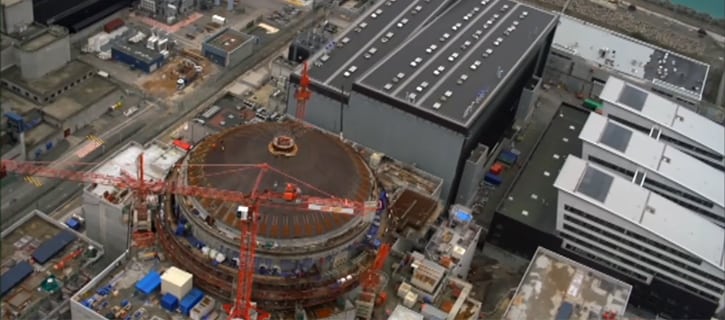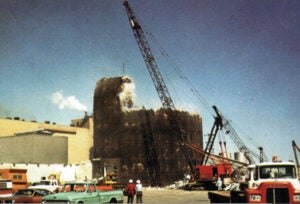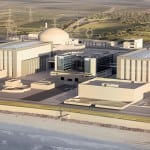China’s ambassador to the UK, in an opinion piece in British newspaper Financial Times, warned that Sino-British relations are “at a crucial historical juncture” and suggested that enormous recent Chinese investments in Britain are at risk should the planned Hinkley Point C nuclear reactor project be cancelled.
The long-delayed and much-debated two-unit expansion at the Hinkley Point Power Plant (Figure 1), which would add two EPR reactors to the facility, seemed to have reached a critical milestone last week when developer EDF made a final decision to proceed with construction. Yet no sooner had that announcement been made than the government of newly installed Prime Minister Theresa May, who took office after the nation’s historic vote to leave the European Union, said that it would “carefully consider” the deal before giving its approval. The move reportedly blindsided both EDF and its Chinese partner China General Nuclear Power (CGN).

Ongoing Controversy
The Hinkley Point expansion has been hugely controversial in both the UK and France. Objections to the project include its total price tag, which has ballooned above £18 billion, as well as its reliance on EDF’s EPR technology, which has experienced lengthy delays and large overruns at two sites in France and Finland where it is under construction (Figure 2). These concerns have stoked opposition among consumer advocates in Britain and labor unions in France, the latter of which are concerned about the risk to EDF’s financial health. Another sticking point is the British government’s generous price guarantee for the new plant’s electricity. That strike price of £92.50/MWh is nearly twice the current wholesale price, and some estimates have suggested it could cost British consumers £30 billion over the life of the agreement.

The debate has been further inflamed by suggestions from some members of the May government that Chinese participation in the project could be a deal-breaker—a significant turnaround from the stance taken by May’s predecessor David Cameron
After EDF was unable to secure enough financing on its own, Cameron helped bring in CGN to take a one-third stake in the project, a moved announced with great fanfare during a state visit by Chinese Premier Xi Jinping in October 2015—a visit that produced a total of nearly £40 billion in investment deals.
By contrast, May’s chief of staff has suggested that CGN, which is state-owned, could build vulnerabilities into the plant that would allow China to shut down the British grid, and has repeatedly raised concerns about China’s human rights record and aggressive stance over matters such as the South China Sea.
Hinkley Point Olive Branch?
On August 8, Ambassador Liu Xiaoming sought to smooth these troubled waters. Nuclear power, he noted, is an industry where multinational cooperation is routine.
“Many of China’s nuclear reactors are built in co-operation with US, Canadian, French and Russian companies,” he said. “Thanks to the safeguards of international standards, there has never been a concern that foreign companies might control China’s nuclear reactors.”
Britain’s security and regulatory systems are adequate to defend the grid against external threats, he argued.
“The UK has a state of the art supervision regime and legal system. Its regulatory authorities are experienced and adequately resourced to ensure the safety of nuclear plants,” he noted, adding that other safeguards exist as well. “The three Hinkley Point partners are members of the International Atomic Energy Agency. So, the French and Chinese partners are subjecting themselves to both international and British standards.”
Liu then noted that Chinese companies have invested enormous sums in Britain in the past decade, enough to make China its second-largest non-European trading partner. That is, he said, because “Britain takes pride in being a country that is open to foreign investors.”
But that investment climate also rests on “mutual trust,” and the delay in a decision on Hinkley Point could be a turning point.
“I hope the UK will keep its door open to China and that the British government will continue to support Hinkley Point,” he said, “and come to a decision as soon as possible so that the project can proceed smoothly.”
In a companion piece elsewhere in the Financial Times, unidentified “Chinese officials” said cancellation of the Hinkley Point project would likely jeopardize other Chinese investments in the UK.
The May government has given no timetable for a decision other than to suggest the review will take several months.
—Thomas W. Overton, JD is a POWER associate editor (@thomas_overton, @POWERmagazine).









